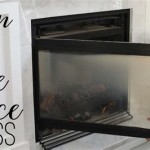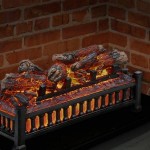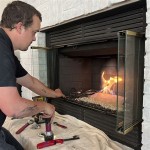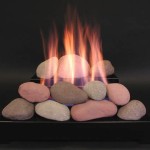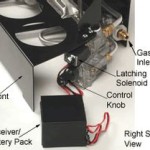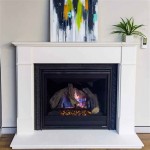Wood Fireplace Insert Options: Essential Considerations
Enhance the warmth and ambiance of your home with a wood fireplace insert. These versatile appliances offer an efficient and economical way to enjoy the charm of a wood fire while minimizing smoke, pollution, and heat loss. However, choosing the right insert can be overwhelming, given the wide range of options available. This article explores the essential factors to consider when selecting the best wood fireplace insert for your specific needs.
Heat Output and Efficiency
The heat output of an insert is measured in British Thermal Units (BTUs). Higher BTU ratings indicate greater heating capacity. Determine the square footage of the area you intend to heat to estimate the required BTU output. Additionally, consider the energy efficiency of the insert, which is typically expressed as the Annual Fuel Utilization Efficiency (AFUE). Higher AFUE ratings indicate more efficient operation, reducing fuel consumption and heating costs.
Size and Dimensions
Ensure the insert fits within the existing fireplace opening or is available in a size that suits your needs. Measure the height, width, and depth of the fireplace opening before purchasing an insert. Consider also the overall dimensions of the insert, including any protruding trims or blower assemblies, to ensure a proper fit and aesthetic appeal.
Fuel Type
Wood fireplace inserts typically burn seasoned hardwood logs. However, there are models that can accommodate alternative fuels such as pellets or coal. Consider the availability and cost of your preferred fuel source in your area when making your selection. Pellet-burning inserts offer ease of use and automated operation, while coal-burning inserts provide longer burn times and higher heat output.
Design and Features
Wood fireplace inserts come in a variety of designs and finishes, allowing you to choose one that complements the style of your home. Consider the material of the insert, such as cast iron or steel, as it can impact durability, appearance, and heat retention. Additional features such as a built-in blower, remote control, or glass door with air wash system can enhance convenience, heat distribution, and aesthetics.
Installation and Maintenance
The installation of a wood fireplace insert should be performed by a qualified professional to ensure safety and optimal performance. Proper ventilation and a dedicated chimney or flue are essential. Regular maintenance is necessary to maintain efficiency and prevent malfunctions. This includes cleaning the insert, chimney, and blower, as well as inspecting the unit for any damage or leaks.

What Are The Types Of Fireplace Inserts Dc Service

Fireplace Insert Guide Fireplaces Direct Learning Center

Fireplace Inserts 5 Money Saving Benefits Efficient Heating

How Fireplace Inserts Work We Love Fire

Wood Fireplace Guide Fireplaces Direct Learning Center

Wood Burning Fireplace Inserts Sierra Hearth And Home
.aspx?strip=all)
Cost Of Operating A Wood Insert Cord Calculator Regency

Fireplace Wood Burning Inserts Nashville Tn Ashbusters

Fireplace Insert Installation Wood Inserts Gas Pellet And Electric

Lopi Premium Wood Fireplace Inserts Custom Hearth Fireplaces And Stoves

